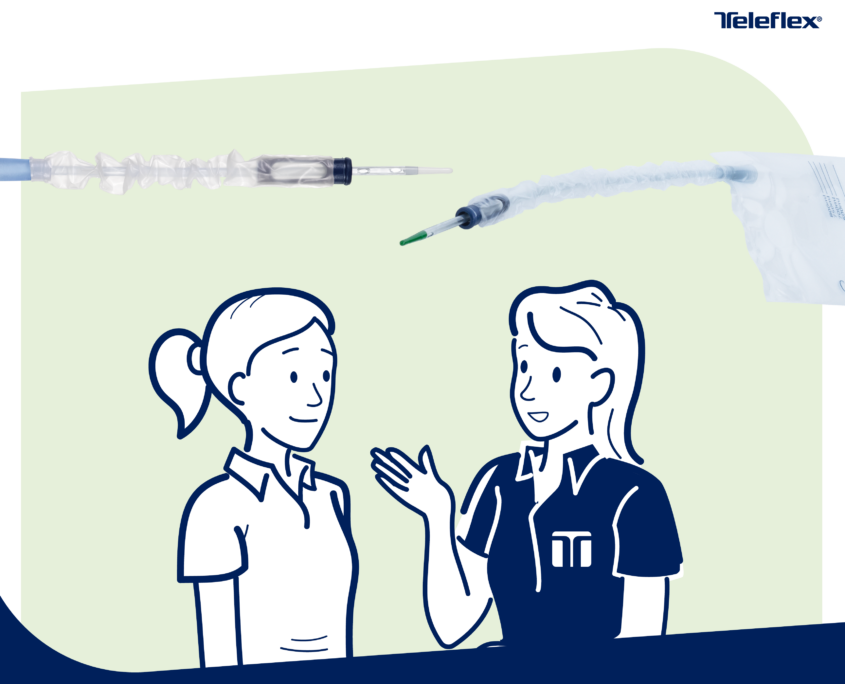Teleflex Urology Care: Questions and answers about intermittent self-catheterisation
What do I need to know about intermittent catheterisation? Compiled is a list of some of the most asked questions from people like you who are new to ISC. The answers may help you to dispel uncertainty and worries and increase your confidence about intermittent self-catheterisation.
Question: Why do I need to catheterise?
Answer: Your bladder is unable to store and/or empty urine properly. There are many reasons why some people cannot empty their bladders and your healthcare professional will explain what the reasons are in your case and why you need to do ISC. ISC may improve your health condition and increase independence and self-confidence.
Question: How long will I need to catheterise for?
Answer: This depends on the reason for incomplete emptying and on your specific condition. Performing ISC could be temporary after surgery or injury while your bladder returns to normal function again. Or it can be permanent due to a spinal cord injury or a disease that affects your urinary system. Your healthcare professional will support you and help you to manage the new situation to protect your bladder health.
Question: How often should I catheterise?
Answer: Your healthcare professional will assess and determine how often catheterisation is necessary. Keeping a urine record may precede the defining of the amount. Please consider the intervals also change with the daily drinking volume.
Question: Is ISC painful?
Answer: When you start learning ISC, your urethra might become sensitive, but with time that should disappear. Ensure that you are using the right size of catheter and follow the instructions of your healthcare professional. You might feel pressure, but no pain. ISC shouldn’t be painful. If you feel pain, contact your healthcare professional.
Question: Do I need to catheterise at night?
Answer: It is usually sufficient to catheterise before going to sleep and immediately after waking up in the morning, however, your healthcare professional will advise what is right for you.
Question: What do I need to do if I travel abroad?
Answer: If you are travelling abroad, please ensure to take enough urinary catheters with you, as they may not be available there during your visit. Carry them in your hand luggage with a medical certificate from your healthcare professional explaining that you need them to empty your bladder.
Question: How often can I use my catheter, and does it have an expiry date?
Answer: Our intermittent catheters are single-use catheters. You must dispose the catheter once it has been used. Each new bladder catheter in unopened and undamaged packaging has a particular shelf life (you will find it on the labelling).
Question: Where and how do I store my single-use catheters?
Answer: Store your single-use catheters flat in their original packaging in a dry place and keep away from direct and indirect sources of light and heat. Please follow the guidance in the instructions for use.
For more information and further question & answers, please visit:
https://www.teleflexurology.com/products/bladder-management/knowledge-/-faq-bladder-management/knowledge-intermittent-catheters/questions-and-answers-intermittent-self-catheterisation/
Image source: Teleflex



